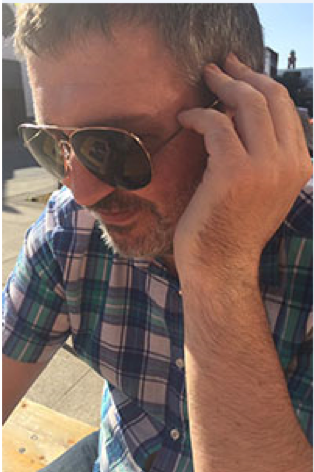Home » For and about students » Techne Community » Techne Students list » Techne Students 2019-20 » Richard Brammer

Richard Brammer
AHRC Techne funded doctoral student
Everyday Chemistry: Applied Disciplines and Technik
University of Westminster
Year of enrolment: 2019
Published artifacts cannot exist without applied practitioners or without the work that they do and yet the relationship between the two areas is rarely theorised, and hardly ever in such a way that applied practice is conceptualised as a class of activity in its own right, with its own culture based around its own conventions, activities and typical topological regions of work. Specific applied disciplines including but not limited to design, engineering, software engineering and data science have historically advanced what publishing is able to do and be.
The innovations associated with engineering generally, and more recently, software engineering have allowed for improved speed of manufacture, storage—both of books themselves but also of ink affixed to a page or poured into a virtual container—transport and rendering or processing of print books, eBooks and websites. Design, at one level, has added aesthetic styling to these products lending more authority for publishers, better experiences for readers and rendering elegant frames to better foreground and present the work of authors. At a second level, it has coupled with engineering to innovate new practices and new iterations of the published artifact, but they are not the only applied disciplines to have an effect. The categorisations and taxonomical systems of data science historically helped create and maintain systems of storage and retrieval for libraries and latterly for physical book shops and onwards to online bookstores, all of which have had a huge influence on the supply chains that publishing depends upon. The growth of big data is perhaps set to further change this in even more unforeseen ways.
Applied disciplines make publishing possible as they make many things possible across a range of disciplines. Overall, my aim here is to draw upon my own multidisciplinary practice and upon the development of Everyday Chemistry publishing, to theorise applied practice more generally, to compare and contrast it with the German understanding of Technik and, from there, to relate this to the manufacture, storage, transport and internal processing of published artifacts at a trans-media and trans-historical level.
